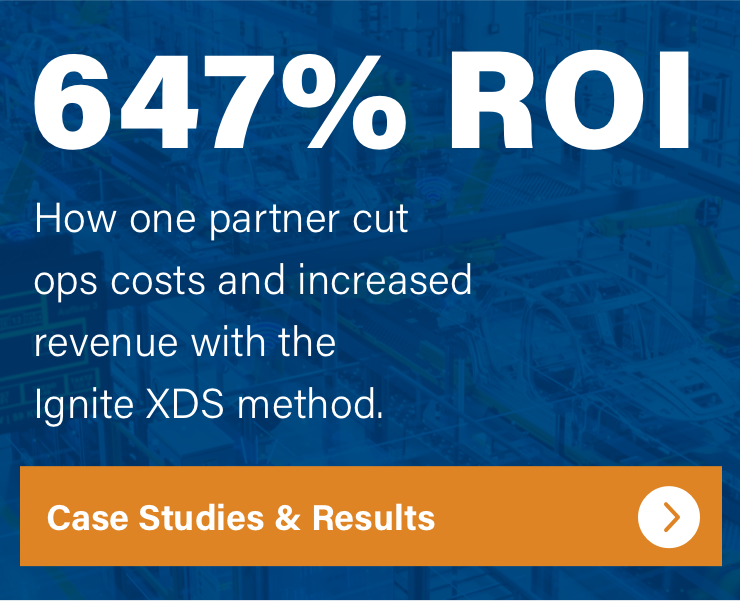
10 Questions a Buyer Will Ask That You Can’t Answer Yet
You don’t prepare for a sale by calling a broker.
You prepare by building a business that’s buyer-ready long before you think about exiting. That means clean operations, clear value, and repeatable systems that work without you.
Here are 10 questions any serious buyer will ask and the ones most companies can’t confidently answer.
1. Where does growth actually come from?
If you can’t break down your lead sources, close rates, and customer acquisition paths, you’re not managing growth, you’re reacting to it. Buyers want to see a reliable, data-backed growth engine that’s tied to specific efforts and replicable outcomes. Saying "referrals" or "relationships" might sound good, but it doesn’t scale, and it doesn’t instill confidence. A scalable company can show where demand comes from and how it turns that demand into revenue, predictably.
2. How scalable is your current operation?
Buyers aren’t just buying your present, they’re buying your potential. If a 30% bump in volume would break your processes, systems, or people, that’s a red flag. Scalability means having the infrastructure (systems, tech, SOPs, roles) to grow without imploding. If growth requires heroic effort every time, it’s not real growth. Buyers are looking for businesses that run smoothly at current size and can handle more without chaos.
3. What does your customer journey look like and where are the friction points?
Every company has a customer experience, whether intentional or accidental. Buyers want to see that you’ve mapped your full journey, from awareness to advocacy, and that you’ve identified and addressed the friction. Missed handoffs, confusing onboarding, or inconsistent service all signal risk. Bonus points if you’ve quantified journey performance (conversion rates, NPS, churn) and are actively optimizing based on data.
4. What happens if your top salesperson leaves?
If one person holds the keys to revenue, your business is fragile. Buyers want to know that sales performance is driven by process, not personality. That means documented playbooks, shared CRM data, and a culture of collaboration, not territorialism. Ideally, no single departure should derail revenue projections. And if you’re the founder and still the best closer? That’s a problem too.
5. How strong is your brand in the market?
This isn’t about logo aesthetics. It’s about market perception, customer trust, and positioning power. A strong brand attracts inbound leads, commands higher margins, and shortens the sales cycle. Buyers want to see that your brand means something in your category, not just to existing customers, but to competitors, partners, and potential new markets. If your brand doesn’t add leverage, it adds risk.
6. How clear is your value proposition?
If your team can’t explain what makes you different in one sentence, your prospects (and potential acquirers) won’t figure it out either. A clear value prop drives everything: marketing, sales, pricing, retention. Buyers look for companies with tight positioning and messaging that resonates. They don’t want to spend the first-year post-acquisition untangling confusion.
7. What systems do you use to manage leads, customers, and operations?
Manual processes, Excel workarounds, or tribal knowledge might work today, but they signal fragility. Buyers want to see modern, integrated systems that support visibility, efficiency, and scale. That includes your CRM, ERP, project management, and reporting tools.
Strong systems = smooth handoff. Weak systems = costly integration.
8. Are your departments aligned around growth?
Misalignment creates drag. Buyers will ask how sales, marketing, operations, and leadership collaborate. Are you rowing in the same direction? Or constantly stepping on each other’s toes? Evidence of alignment includes shared KPIs, cross-functional processes, and team-wide clarity on goals. If each department defines success differently, a buyer sees chaos, not cohesion.
9. What’s your customer retention rate and why?
Recurring revenue is a valuation multiplier. High retention reduces CAC pressure and proves customer satisfaction. But the key isn’t just the number, it’s the "why." Can you explain what keeps your customers around? Or why some leave? Buyers want insights, not just stats. Understanding churn drivers and loyalty factors shows maturity and signals that you’re proactively improving.
10. What would I need to fix on Day One?
This is where most deals fall apart. If there’s a long list of broken systems, outdated roles, unclear financials, or toxic culture issues, the perceived risk spikes. Buyers will discount heavily or walk away entirely. The more Day One problems you solve now, the more leverage you have later. Think like a buyer: What would worry you if you were acquiring this company?
If these questions feel uncomfortable, good. That means you’re starting to see your business the way a buyer would.
And whether or not you ever plan to sell, that's the mindset that builds a company worth buying.
Want to make your business more valuable starting now? Let’s build the system.


